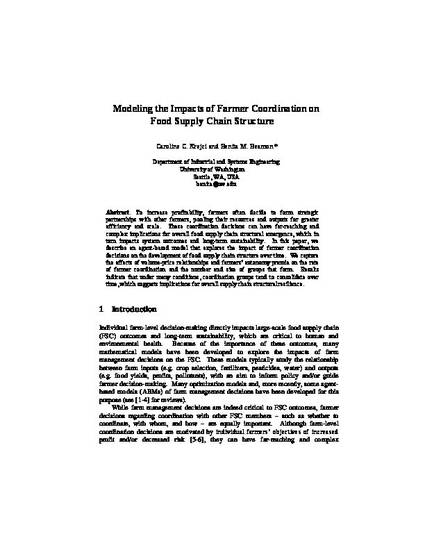
Presentation
Modeling the Impacts of Farmer Coordination on Food Supply Chain Structure
2013 Computational Social Science Society of the Americas Annual Conference
(2013)
Abstract
To increase profitability, farmers often decide to form strategic partnerships with other farmers, pooling their resources and outputs for greater efficiency and scale. These coordination decisions can have far-reaching and complex implications for overall food supply chain structural emergence, which in turn impacts system outcomes and long-term sustainability. In this paper, we describe an agent-based model that explores the impact of farmer coordination decisions on the development of food supply chain structure over time. We capture the effects of volume-price relationships and farmers’ autonomy premia on the rate of farmer coordination and the number and size of groups that form. Results indicate that under many conditions, coordination groups tend to consolidate over time, which suggests implications for overall supply chain structural resilience.
Publication Date
2013
Location
Santa Fe, NM
Comments
Copyright 2013 The Authors
Citation Information
Caroline C. Krejci and Benita M. Beamon. "Modeling the Impacts of Farmer Coordination on Food Supply Chain Structure" 2013 Computational Social Science Society of the Americas Annual Conference (2013) Available at: http://works.bepress.com/caroline_krejci/7/
